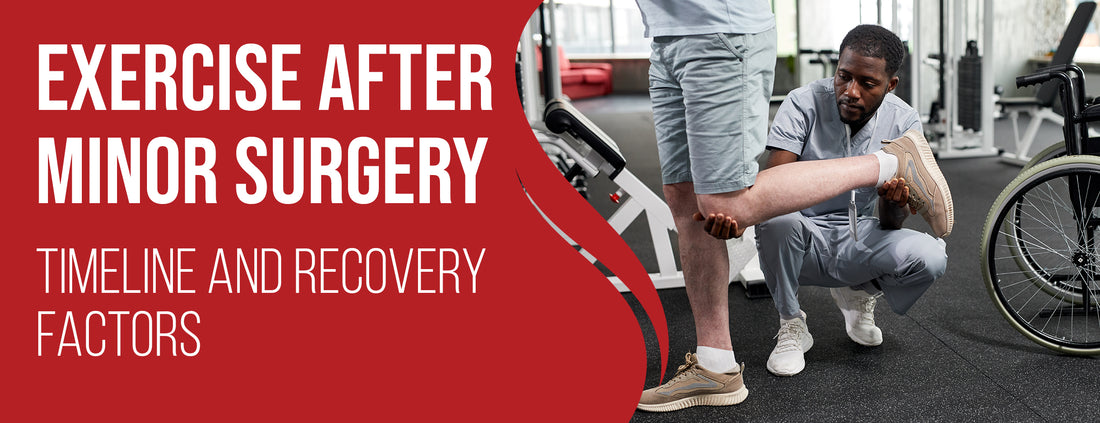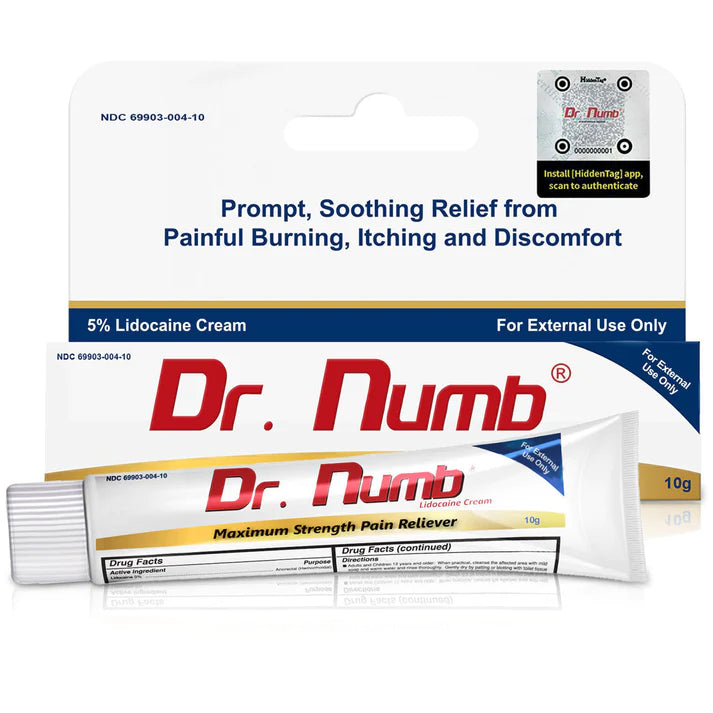Exercising too soon after surgery is actually harmful. You should give your body adequate rest after minor surgery before you begin exercising.
Avoid exercise immediately after surgery. Wait a few weeks before starting light exercise in your daily routine. Give your stitches or incisions time to heal before putting them under strain. It's better to push a little too hard, too soon, so you don't cause complications.
This article will dive deep into the timeline, factors affecting recovery, guidelines, benefits, and common myths surrounding exercising after minor surgery. We hope you'll find this information helpful in determining when it's safe to return to your workout routine.
How Long After Minor Surgery Can You Exercise: Timeline

After undergoing minor surgery, it is crucial to allow your body the time it needs to heal and recover. Incorporating exercise back into your routine should be a gradual process that aligns with your body's recovery pace. To guide you through this journey, we've outlined a timeline with distinct phases, each designed to help you regain your strength and flexibility safely and effectively.
The First Week After Surgery: Rest and Gentle Movements
Your body requires ample rest to initiate the healing process. Engage in light movements that encourage blood circulation and prevent stiffness, but avoid any vigorous activities that could strain the healing incision site.
- Prioritize adequate sleep and hydration to support the healing process.
- Perform gentle stretches to prevent muscle tightness.
- Short walks can promote blood flow without overexerting your body.
Second Week: Gradual Introduction of Low-Intensity Exercises
As you enter the second week of recovery, you can gradually reintroduce exercise into your routine. Keeping the intensity low is crucial to prevent undue stress on your healing body. Focus on activities that engage different muscle groups without causing strain.
- Begin with simple bodyweight movements like gentle squats and modified push-ups.
- Incorporate resistance bands for added resistance during low-impact exercises.
- Pay close attention to your body's signals; pause and rest if you experience pain or discomfort.

Third Week: Progressing to Moderate-Intensity Exercise
By the third week, your body should show improved healing and flexibility. It's now appropriate to gradually increase the intensity of your exercises. Ensure that you still prioritize caution and don't push yourself too hard.
- Consider stationary biking or swimming as low-impact options for cardiovascular exercise.
- Integrate bodyweight strength exercises such as lunges and modified planks.
- If your healthcare professional advises, light jogging or brisk walking could be considered.
Fourth Week: Regaining Full Range of Motion
As you approach the fourth-week post-surgery, your body is likely to have made significant progress in terms of healing. It's time to focus on regaining your entire range of motion and continuing to build strength.
- Explore yoga or Pilates routines to enhance flexibility and core strength.
- Gradually transition to weight-bearing exercises, starting with light dumbbells.
- Pay attention to any lingering discomfort or signs of strain; consult your doctor if needed.
Exercise After Minor Surgery: Recovery Factors
When it comes to determining the appropriate time to resume exercise after minor surgery, several factors come into play. These factors can significantly impact your body's healing process and the timeline for safely reintroducing physical activity. Let's explore these influential factors in detail.
Type of Surgery
Different surgeries target varying areas of the body, and the complexity of the procedure can significantly affect how long your body needs to recover fully. Some surgeries involve minimal invasion, while others could be more extensive, requiring a more extended recovery period.
- Less Invasive Procedures: Surgeries that involve smaller incisions or minimally invasive techniques may have shorter recovery times.
- Moderate to Complex Procedures: Surgeries involving more extensive tissue manipulation or internal organ involvement might necessitate a more extended recovery period.
Extent of Surgery
The extent of the surgery refers to the amount of tissue or organs affected by the procedure. This is vital in determining the body's healing response and recovery duration.
- Limited Tissue Involvement: Procedures targeting a smaller tissue area lead to quicker recovery times.
- Extensive Tissue Manipulation: Surgeries that involve multiple tissues or larger areas might require a more extended recovery period.

Individual Health Condition
Your overall health and well-being significantly influence how quickly your body heals after surgery. Pre-existing health conditions can impact the body's ability to recover efficiently.
- Good Health: Individuals with good overall health tend to recover more swiftly after surgery.
- Chronic Health Issues: Pre-existing conditions like diabetes or heart disease can prolong recovery.
Medications Taken Pre- and Post-Surgery
Medications prescribed before and after surgery can impact recovery time. Some medicines might enhance the healing process, while others could slow it down or interact with physical activity.
- Positive Impact: Certain medications promote healing and reduce inflammation, potentially aiding in a faster recovery.
- Caution with Blood Thinners: Blood-thinning medications might increase the risk of post-surgery bleeding, affecting the timeline for resuming exercise.
Exercise After Minor Surgery: Guidelines for Safe Exercise
Exercise must be started carefully following minor surgery to ensure a smooth recovery. Follow guidelines to make informed decisions about resuming physical activity. Here are essential guidelines to consider as you transition back to exercise:
Consultation with Your Physician

Before you embark on any exercise regimen post-surgery, it's crucial to seek guidance from your physician or healthcare provider. Their expertise will ensure you're on the right track for a safe and successful recovery.
- Physician's Approval: Obtain your healthcare provider's approval before exercising.
- Individualized Recommendations: Your doctor can provide specific instructions based on your surgery type, health condition, and overall fitness level.
Begin with Light Exercises
When recovering, begin with gentle, low-impact exercises to prevent strain on your body. These exercises encourage blood flow and mobility without jeopardizing your healing process.
- Walking: Short walks can be an excellent way to initiate movement without overexerting yourself.
- Stretching: Gentle stretches promote flexibility and prevent muscle stiffness.
- Deep Breathing Exercises: Controlled breathing can aid in relaxation and reduce tension.
Gradually Increase Intensity and Type of Exercise
As your body shows signs of improvement, gradually ramping up the intensity and variety of exercises can help you regain strength and flexibility without compromising your recovery.
- Low-Impact Cardio: Start with activities like stationary cycling or swimming that are easy on the joints.
- Strength Training: Gradually introduce light resistance exercises using body weight or resistance bands.
- Flexibility Exercises: Incorporate yoga or gentle Pilates routines to improve flexibility and range of motion.
Listen to Your Body for Signs of Discomfort
Your body communicates its needs and limitations. Paying close attention to any signals of discomfort or pain is vital to prevent overexertion or setbacks.
- Pain: Stop the activity and rest if you experience sharp or persistent pain.
- Fatigue: Feeling overly tired during or after exercise could indicate you're pushing too hard.
- Swelling or Redness: Monitor your surgical site for abnormal changes after exercising.
Exercise After Minor Surgery: Benefits

Engaging in appropriate exercise following minor surgery can improve the likelihood of a smoother recovery and overall well-being. As your body heals, incorporating gentle physical activity into your routine can positively affect various aspects of your health. Let's delve into the advantages of post-surgery exercise:
Enhanced Circulation
Physical activity stimulates blood circulation, essential for delivering oxygen and nutrients to healing tissues. Improved circulation accelerates the body's natural healing processes.
- Increased Oxygen Supply: Better blood flow supplies healing tissues with more oxygen, aiding repair.
- Waste Removal: Enhanced circulation helps eliminate waste products, reducing the risk of swelling and discomfort.
Reduced Risk of Blood Clots

Prolonged periods of immobility can increase the risk of blood clots. Incorporating movement and exercise into your recovery routine can help prevent this potentially serious complication.
- Muscle Contractions: Movement encourages muscle contractions that help prevent blood from pooling and clotting.
- Venous Return: Regular activity assists venous return, promoting proper blood flow from extremities to the heart.
Diminished Inflammation
Surgery causes inflammation, but excessive inflammation can impede healing. Controlled exercise can help regulate inflammation levels.
- Anti-Inflammatory Effects: Moderate exercise can have anti-inflammatory effects, helping to manage swelling and discomfort.
- Balanced Healing: Exercise supports a more balanced healing response by preventing excessive inflammation.
Boosted Immune System
Post-surgery, your immune system plays a vital role in preventing infection and promoting healing. Exercise can enhance immune function and support your body's defense mechanisms.
- Lymphatic System Activation: Physical activity activates the lymphatic system, aiding in removing waste and toxins.
- Immune Cell Circulation: Improved circulation helps immune cells travel throughout the body more effectively.

Improved Mental Health and Mood
An active lifestyle contributes to mental well-being. Exercise can help alleviate stress, anxiety, and potential feelings of isolation during recovery.
- Endorphin Release: Exercise triggers the release of endorphins, which are natural mood enhancers.
- Distraction: Focusing on exercise can divert your attention from discomfort and promote a positive mindset.
Conclusion
Exercise can improve healing and overall health after minor surgery. Follow the instructions of your physician, start with light exercises, and gradually increase the intensity and type of activity.
Listen to your body for discomfort and give it ample time to recover fully. By taking control of your health and prioritizing your recovery, you'll return to your regular exercise routine quickly. Your health is in your hands.








![The 16 Best Fastest Way To Remove A Mole Naturally [DIY]](http://drnumb.com/cdn/shop/articles/What_Is_the_Fastest_Way_to_Remove_a_Mole_Naturally__16_Solutions_DIY.jpg?v=1704371079)




